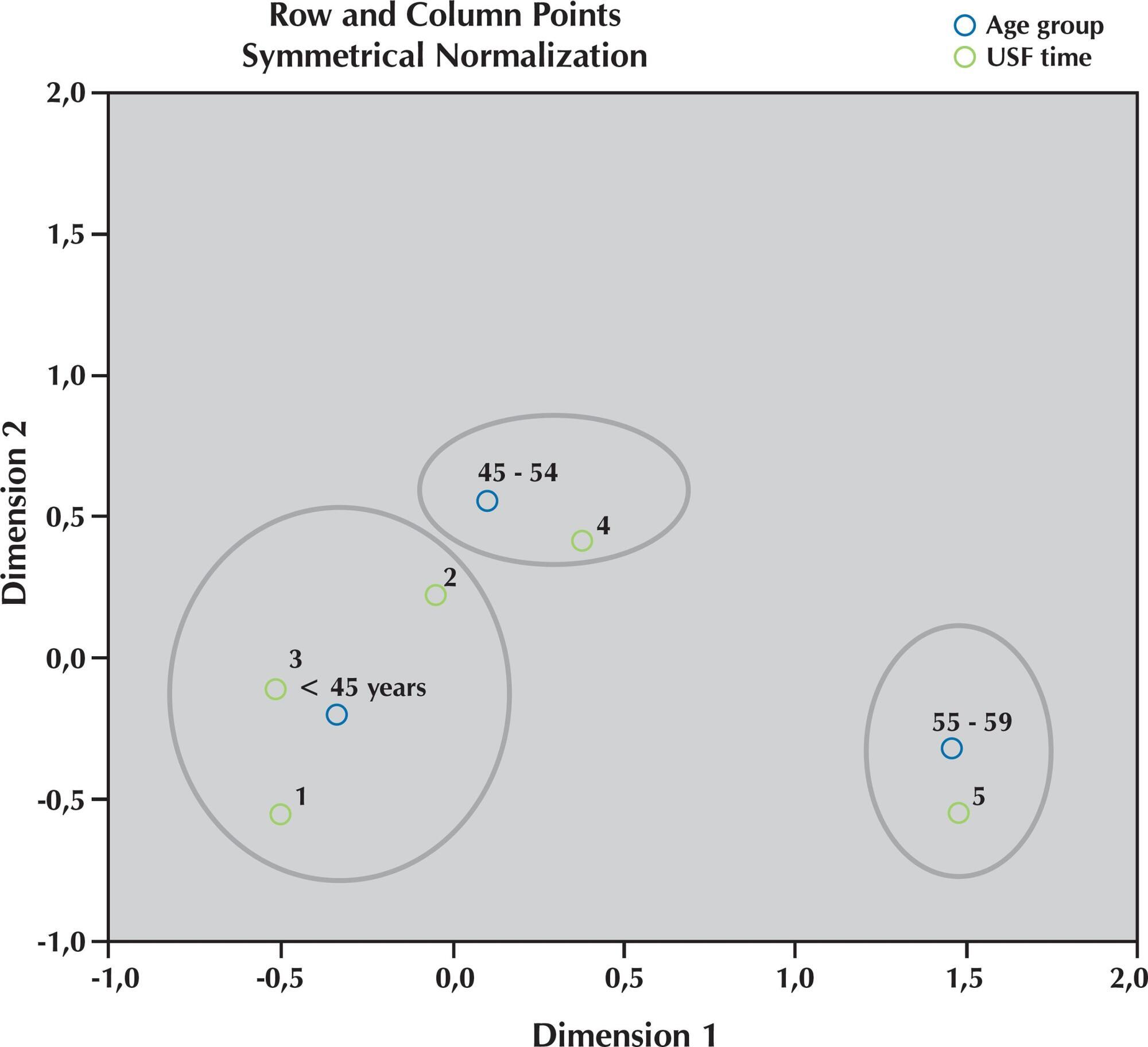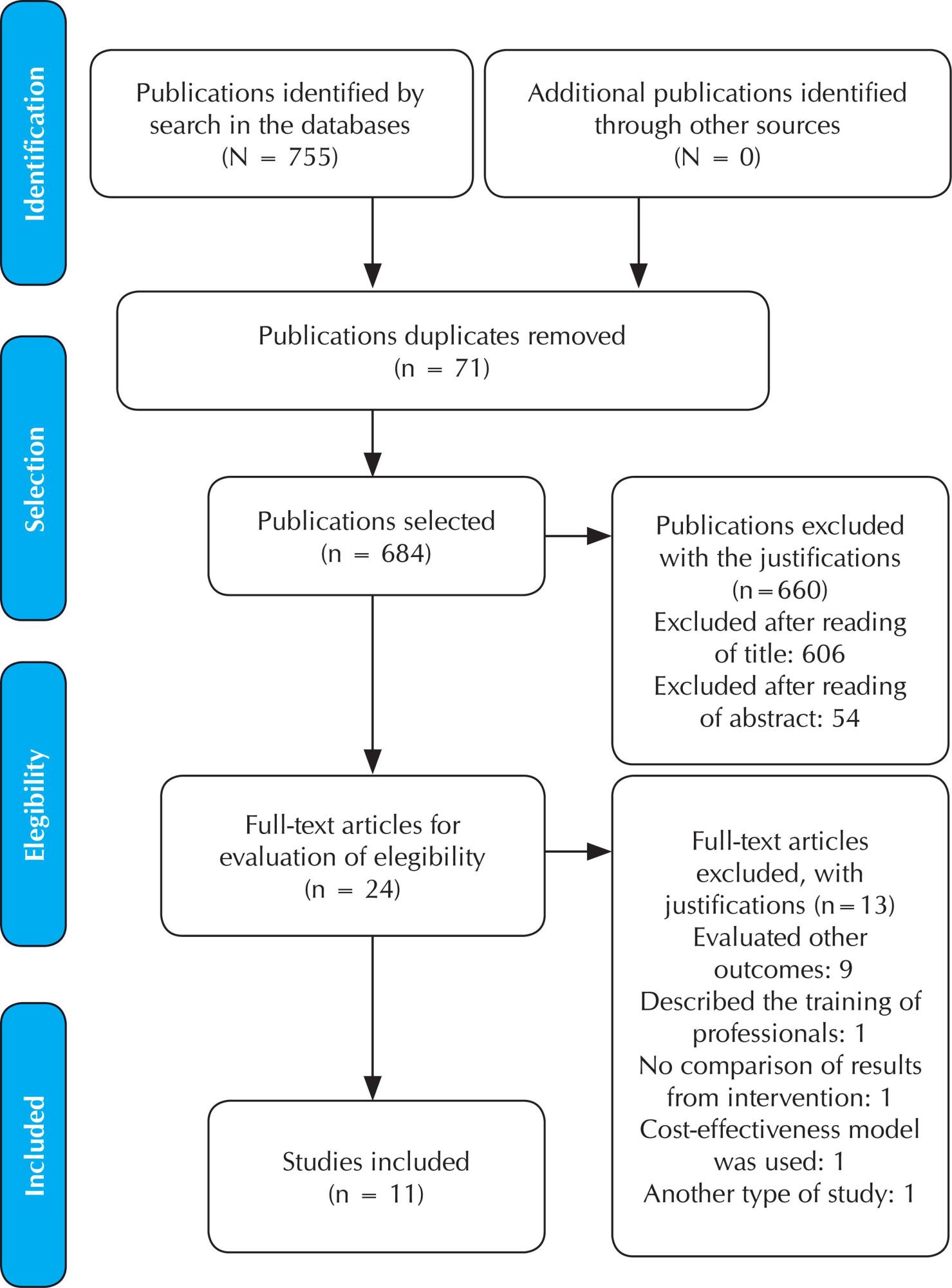-
ORIGINAL ARTICLE
Quality of health care in Primary Care: perspective of people with Diabetes Mellitus
Revista Brasileira de Enfermagem. 2023;76(5):e20230008
10-06-2023
Resumo
ORIGINAL ARTICLEQuality of health care in Primary Care: perspective of people with Diabetes Mellitus
Revista Brasileira de Enfermagem. 2023;76(5):e20230008
10-06-2023DOI 10.1590/0034-7167-2023-0008
Visualizações0ABSTRACT
Objectives:
to identify how people with diabetes assess the care offered by Primary Care teams.
Methods:
a cross-sectional study based on structured interviews with the application of the Patient Assessment of Chronic Illness instrument to people with Type 2 Diabetes Mellitus. Data were submitted to statistical analysis.
Results:
451 individuals participated in the study, more than half aged 60 years or older (64.0%); 63.9% had been diagnosed for more than five years; and 23.9% used insulin. The average score obtained was 2.5, which indicated little involvement in self-care and low support for the care of the chronic condition by the Family Health Strategy team, and was higher among women and people with a partner.
Conclusions:
people with diabetes consider that they do not receive individualized treatment, with dialogue and discussion for setting goals, and that they are not prepared for self-managing their health condition.
Palavras-chave: Diabetes Mellitus Type 2Patient SafetyPrimary Health CareQuality of Health CareSelf-CareVer mais
-
EXPERIENCE REPORT
Art therapy and education between peers connecting the group: an experience report
Revista Brasileira de Enfermagem. 2020;73(5):e20180958
07-01-2020
Resumo
EXPERIENCE REPORTArt therapy and education between peers connecting the group: an experience report
Revista Brasileira de Enfermagem. 2020;73(5):e20180958
07-01-2020DOI 10.1590/0034-7167-2018-0958
Visualizações0ABSTRACT
Objective:
to report the “Talent Workshop: Art Therapy Connects the Group”.
Method:
this is an experience report of a workshop developed in November 2018, in 3 meetings, at the Family Clinic setting - Rio de Janeiro. Twenty-eight users participated, including diabetics and health professionals. In the first meeting, dynamics was used for presentation. At the second meeting, the circular process and peer education were used to address issues related to diabetes, in addition to exposing talent to workshop participants. At the third meeting, there was exposure of talents to every health unit.
Results:
the workshop provided comprehensive, individual and collective health promotion of users, allowing knowledgemultiplicationin their living environment.
Final Considerations:
the workshop was relevant for health education, changing the understanding of the subject’s autonomy about his role in self-care.
Palavras-chave: Complementary TherapiesDiabetes Mellitus Type 2Health EducationHealth PersonnelHealth PromotionVer mais -
ORIGINAL ARTICLE
Validation of a booklet on self-care with the diabetic foot
Revista Brasileira de Enfermagem. 2019;72(3):780-787
06-27-2019
Resumo
ORIGINAL ARTICLEValidation of a booklet on self-care with the diabetic foot
Revista Brasileira de Enfermagem. 2019;72(3):780-787
06-27-2019DOI 10.1590/0034-7167-2017-0900
Visualizações0ABSTRACT
Objective:
to describe the validation of the booklet on self-care with the feet of people with diabetes.
Method:
methodological study, focusing on the validation of a printed booklet. The content and appearance of the booklet was validated by 23 judges divided into three groups: 11 content and appearance, seven technicians and five of the area of design and marketing. The appearance was validated by 30 people with type 2 Diabetes Mellitus.
Results:
the judges in the nursing area allowed the validation of material with a Content Validity Index (CVI) of 0.99, judges in the area of design and marketing with Suitability Assessment of Materials (SAM) of 99.2% and the target audience with concordance index of 99.4%.
Conclusion:
the educational booklet proved to be valid and reliable educational material to be used in order to promote compliance with self-care with the feet of people with Diabetes Mellitus.
Palavras-chave: Diabetes Mellitus Type 2Diabetic FootEducational TechnologyTeaching MaterialsValidation StudiesVer mais
-
RESEARCH
Characterization of users at risk of developing diabetes: a cross-sectional study
Revista Brasileira de Enfermagem. 2018;71(suppl 1):475-482
01-01-2018
Resumo
RESEARCHCharacterization of users at risk of developing diabetes: a cross-sectional study
Revista Brasileira de Enfermagem. 2018;71(suppl 1):475-482
01-01-2018DOI 10.1590/0034-7167-2017-0776
Visualizações0Ver maisABSTRACT
Objective:
To characterize the profile of users at risk of developing diabetes mellitus type 2 according to sociodemographic and clinical variables.
Method:
Cross-sectional study, descriptive, quantitative approach conducted with 266 users of Basic Care. Inferential statistics analysis, calculating the crude prevalence ratio with confidence interval of 95% and Kruskal-Wallis test, and application of the multivariate technique simple Correspondence Analysis.
Results:
It was noted that 83.1% were women and 36.4% frequented the Family Health Unit from 1 to 5 years. Regarding the factors associated with diabetes mellitus type 2, 66.5% of the users were overweight and 77.9% were rated with central obesity. The great majority, 77.4%, did not practice physical activities and 21.1% had altered glycemia.
Conclusion:
The results showed that many risk factors for developing diabetes mellitus type 2 were among the population of the study.

-
REVISÃO
Impact of educational interventions in reducing diabetic complications: a systematic review
Revista Brasileira de Enfermagem. 2016;69(4):773-784
01-01-2016
Resumo
REVISÃOImpact of educational interventions in reducing diabetic complications: a systematic review
Revista Brasileira de Enfermagem. 2016;69(4):773-784
01-01-2016DOI 10.1590/0034-7167.2016690422i
Visualizações0ABSTRACT
Objective:
To identify in the literature evidence of the effectiveness and efficacy of educational interventions in reducing metabolic and/or vascular complications in adults with diabetes mellitus.
Method:
A systematic review performed in LILACS, IBECS, CUMED, CINAHL and Medline databases and in the online library SciELO with studies published from 2004 to 2014.
Results:
Eleven studies were included (5 randomized clinical trials and 6 quasi-experimental). We only identified studies that analyzed vascular complications.
Conclusion:
Two clinical trials demonstrated efficacy in reducing cardiovascular complications, of cataract or retinopathy and nephropathy and all the quasi-experimental studies showed effectiveness in reducing feet ulcers, peripheral neuropathy and vasculopathy, and maintenance of kidney function.
Palavras-chave: Diabetes Mellitus Type 1Diabetes Mellitus Type 2Diabetic ComplicationsEvaluation of the Efficacy-Effectiveness- of InterventionsHealth EducationVer mais



